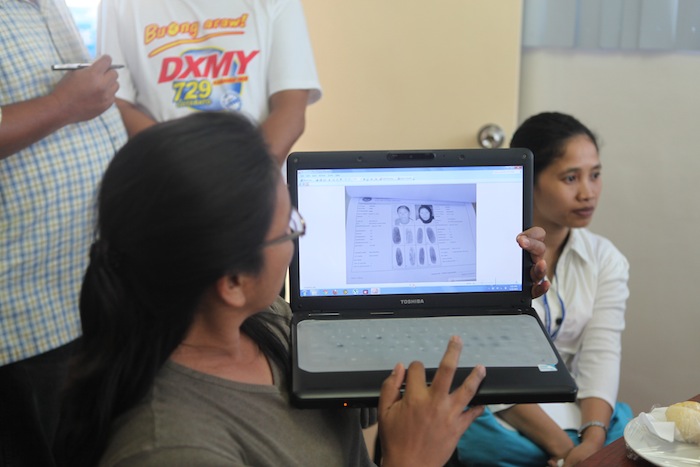
COTABATO CITY— The Autonomous Region for Muslim Mindanao (ARMM) now faces the difficult, if not almost impossible, task of weeding out the multiple registrants from last July’s general voters’ registration because the Commission on Election failed to provide for the automatic deletion of such registrants.
Because of this oversight, suspected double or multiple registrants would have to go through hearings for them to be disqualified or disallowed to vote, said Integrated Bar of the Philippines (IBP)-Cotabato City President Noel A. Ben.
“But the challenge is, can they (Comelec) do that?” he asked.
Ben doubts that the Comelec would be able to hear all cases of double or multiple registrants because of what civil society groups suspect to be a huge number of such cases, based on reports of election monitoring groups during the July 9 to 18 general voters’ registration.
The hearings are to be conducted by the Election Regulatory Board in the municipal offices of Comelec and will be headed by each town’s Election Officer. The Comelec has only from Sept. 20 to 26 to conduct those hearings.
Reports were rife of multiple registrants as well as minors registering to vote, a practice that the July registration was supposed to have eliminated.
In 2010, when the Comelec ran the biometrics data of registered voters nationwide, Maguindanao scored the highest with 16, 418 identical records followed by Lanao del Sur at 11,685, and Sulu with 8, 012. All top three provinces are in ARMM.
The ARMM’s book of voters has long been suspected of being padded, and the region considered the country’s “cheating capital.”
The problem prompted the Senate and the House of Representatives to pass a joint resolution, signed by President Benigno S. Aquino, annulling the region’s voters’ book, stating among other reasons that “the electoral history of the ARMM shows that election results in these areas are always questionable and tainted with anomaly and irregularity, principally because of the padded Book of Voters.”
Based on this, Comelec promulgated Resolution 9475 on June 21 detailing the rules and regulations in the conduct of the ARMM registrations.
But Resolution 9475 should have provided for the “automatic deletion of those multiple or double registrants with the help of the biometric technology,” Ben said.
Ben, who represented the Legal Network for Truthful Elections (LENTE) representative in ARMM’s Task Force Rehistro (TFR), said that since the Comelec did not include double and multiple registrants in its rules and regulations, they will be subjected to ERB hearings “for the purpose of disallowing them, declaring them to be illegitimate or disqualified,” he asked.
A provision in the resolution would have made an ERB hearing unnecessary because results of running the applicants’ fingerprints through the Automated Fingerprint Identification System (AFIS) would have been “conclusive and competent evidence,” he said.
Comelec must now tender a list of double and multiple registrants and they (multiple and double registrants) must be given a chance to be heard “by way of their procedural right,” he said.
In cases where individuals registered more than once in different towns “by means of legal process, the first one who obtained jurisdiction acquires jurisdiction,” Ben explained. But for now, there are still no clear guidelines on how Comelec plans to go about it, he said.
Initial concerns were expressed in TFR meetings about the deletion of double and multiple registrants because local politicians are known to threaten EOs when they go against them.
In case double and multiple registrants do not show up in the ERB hearings, this will be “taken as a waiver of their right not to be included in the list as registrant,” he said.
Under the resolution 9475, the conduct of general registrations was set for July 9 to 18 and the ERB hearings were to take place August 13 to 17, the last week of the observance of the month-long Ramadan fasting.
On August 10, the Comelec through Resolution 9515 reset the schedule to September 20 to 26 “to give ample time to complete the biometrics matching.”
ARMM Regional Governor Mujiv Hataman meanwhile admitted that while he was consulted at the senate hearing when the schedules in the resolution were being finalized, emphasis was only that the actual registration dates do not take place beyond Ramadan. The ERB hearings were overlooked, he said.
The rescheduling was welcomed by the regional governor who is also TFR chair as he said that, “even myself, pwedeng aminin, di nabigyan ng stress ang ERB hearing (I admit that even I did not stress the importance of the ERB hearing).
(ARMM WATCH is a project of VERA Files in partnership with MindaNews, The Asia Foundation and Australian Agency for International Development.)